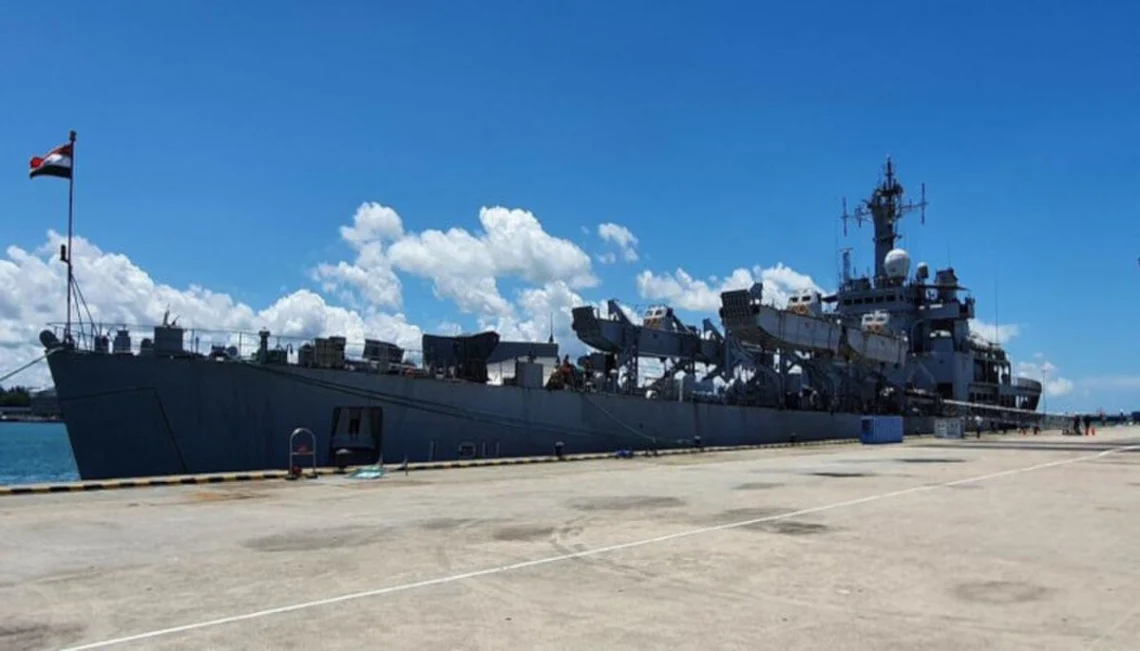Most of India’s humanitarian assistance and disaster relief (HADR) efforts involve natural disasters—earthquakes, floods, storms, and wildfires. Climate change and global warming have only exacerbated their frequency, with rising populations leading to a more significant adverse impact.
India has provided humanitarian assistance to West and Southeast Asian countries within and outside its immediate neighbourhood. Two notable responses are those from Operations Karuna and Samudra Maitri.
Operation Karuna: The most robust cyclone to land in the Bay of Bengal – Cyclone Mocha – hit first in Myanmar on 14th May 2023, causing heavy rains, storm surges, flash floods, and landslides. Western Rakhine state’s capital city, Sittwe, was 90 per cent destroyed. India launched Operation Karuna four days later, on 18th May, with Indian Navy ships delivering 40 tonnes of relief materials, including food, medicine, water pumps, clothes, hygiene items, and portable generators.
Operation Samudra Maitri: On 28th September 2018, Indonesia’s Central Sulawesi province was hit by a 7.5-magnitude earthquake. It caused a 1.5-metre tsunami wave, killing nearly 4,500 people, with tens of thousands of buildings affected. The Indian response was to launch Operation Samudra Maitri on 3rd October 2018, utilizing Indian Air Force (IAF) and Indian Navy (IN) assets. The IAF’s C-130J aircraft had a medical team, tents, and equipment to set up a field hospital, while the C-17 aircraft had medicines, generators, tents, and water for immediate assistance. The Indian Navy Ships (INS) Tir, Sujatha, and Shardul conducted HADR operations.
In addition to conducting unbiased disaster operations on foreign soil, India follows the same policy regarding humanitarian aid. Three cases of New Delhi’s assistance in trying times have been to the people of Palestine, Afghanistan, and Madagascar (Operation Vanilla).
Humanitarian Aid
Palestine: Palestinians have received over 70 tonnes of humanitarian aid from India, transported via IAF aircraft. It includes 16.5 tonnes of medicine and medical supplies. Since 2023, New Delhi has donated USD 5 million to the United Nations Relief and Works Agency for Palestine Refugees in the Near East to support education, healthcare, relief, and social services.
Afghanistan: India has delivered 50,000 metric tons of wheat, 28 tons of disaster relief, and 200 tons of medicines, vaccines, and other medical items to Afghanistan. Along with the United Nations Office on Drugs and Crime (UNODC), New Delhi has provided 1,100 female hygiene kits and blankets nationwide for UNODC female rehabilitation centres.
Madagascar: Just as COVID-19 took hold of the world in January 2020, Madagascar faced Cyclone Diane, causing heavy floods that affected 92,000 people. With Madagascar requesting Indian aid, INS Airavat was diverted to the island state from the Southern Indian Ocean. Operation Vanilla began on 28 January 2020, ensuring relief materials were delivered. Medical camps, food, water, and other required materials were provided.
Conclusion
India’s commitment to disaster response operations and humanitarian aid stems from a deep-rooted belief in providing assistance to those in need, both within the country and beyond its borders. The proactive engagement of New Delhi in such endeavours not only reflects its altruistic values but also sets a positive precedent for other nations to follow. By continuously refining its expertise and skills in handling humanitarian assistance and disaster relief (HADR) operations, India strengthens its capabilities and inspires confidence in the recipient states and their regions. This growing trust in Indian capabilities fosters closer ties and collaboration, positioning India as a reliable and valuable ally in times of crisis. As India continues its efforts in disaster response and aid provision, the mutual benefits for all involved parties are poised to further enhance the resilience and preparedness of the region in the face of potential calamities.
Featured image: During Operation Samudra Setu, INS Airavat was stationed at Singapore


Thank you for your sharing. I am worried that I lack creative ideas. It is your article that makes me full of hope. Thank you. But, I have a question, can you help me?